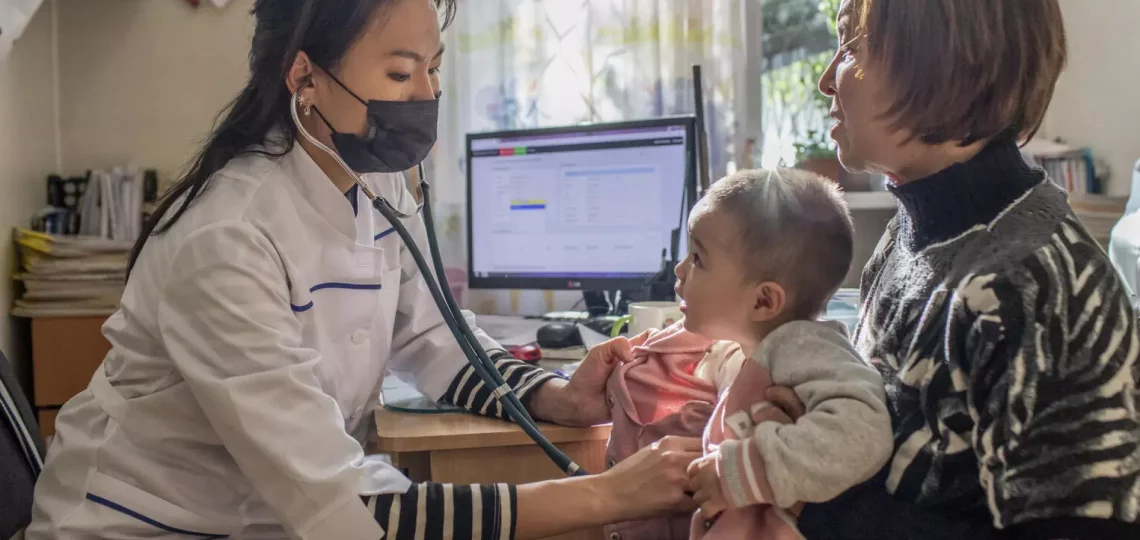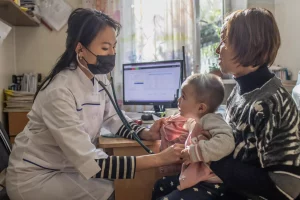
Primary Health Care
Primary Health Care – The concept of Primary Health Care (PHC) has undergone many interpretations and redefinitions since 1978, often leading to confusion regarding the term and its practice. To address this, a clear and concise definition has been developed to facilitate coordination of PHC efforts at various levels—global, national, and local—and to guide its implementation:
Primary Health Care
roskapital – “PHC is a holistic approach to health that aims to ensure the highest possible level of health and well-being and its equitable distribution. It focuses on people’s needs and covers the entire spectrum, from health promotion and disease prevention to treatment, rehabilitation and palliative care, providing services as close as possible to people’s daily lives.” (WHO and UNICEF).
PHC consists of three interrelated and mutually supportive components: integrated and comprehensive health services that include primary care and public health functions as their core; cross-sectoral policies and actions to address the broader determinants of health; and the involvement and empowerment of individuals, families, and communities in promoting social participation and independence in health.
This approach is rooted in a commitment to social justice, equity, solidarity, and participation. PHC is based on the recognition that every individual has the right to enjoy the highest attainable standard of health without discrimination.
To achieve universal health coverage (UHC) in its entirety, health systems need to shift from disease-centered and institutionalized to systems that are built with people. PHC emphasizes the need for government action at all levels to address actions beyond the health sector, with a comprehensive approach that includes integrating health into all policies, emphasizing equity, and involving interventions across the life cycle.
PHC also addresses the broader determinants of health, focusing on the full range of physical, mental, and social well-being. With a comprehensive approach, primary health care ensures that individuals receive quality services—from promotion and prevention to treatment, rehabilitation, and palliative care—as close to their daily lives as possible.
Read Also : Mengapa Public Speaking Menjadi Keterampilan Esensial bagi Seorang Sekretaris
Why is Primary Health Care So Important?
Member States have committed to reforming and implementing PHC as the foundation for sustainable health systems, supporting UHC, the health-related Sustainable Development Goals (SDGs), and health security. PHC serves as a “programmatic engine” for achieving UHC, the related SDGs, and ensuring health security. This commitment has been enshrined and reinforced in the Astana Declaration, World Health Assembly Resolution 72/2, the Global Monitoring Report on UHC, and the high-level declaration by the United Nations General Assembly on UHC. While UHC, the SDGs, and the health security goals are ambitious, their achievement remains limited. Progress must therefore be accelerated, and PHC offers a means to do so.
Read Also : Getting to Know the Symptoms and Causes of Mumps
Overall, PHC is the most inclusive, equitable, cost-effective, and efficient approach to improving people’s physical and mental health, as well as social well-being. Evidence of the positive impacts of investing in PHC is mounting around the world, especially during times of crisis, such as the COVID-19 pandemic.
Globally, investments in primary health care (PHC) have been shown to improve equity and access, health service performance, health system accountability, and population health outcomes. While some of these factors are directly related to health systems and access to services, there is evidence that elements outside the health sector also play a crucial role in shaping individual health and well-being. These elements include social protection, food systems, education, and environmental factors, among others.
Primary health care has a significant role to play in making health systems more resilient to crises, more proactive in detecting early signs of epidemics, and better prepared to respond to surges in demand for services. While the evidence is still evolving, it is widely recognized that PHC serves as the “front door” of health systems, providing a strong foundation for strengthening public health functions that are essential in responding to health crises, such as the COVID-19 pandemic.
WHO Response
The World Health Organization (WHO) is working to help countries shift the focus of their health systems towards primary health care as the primary approach to achieving Universal Health Coverage (UHC).

